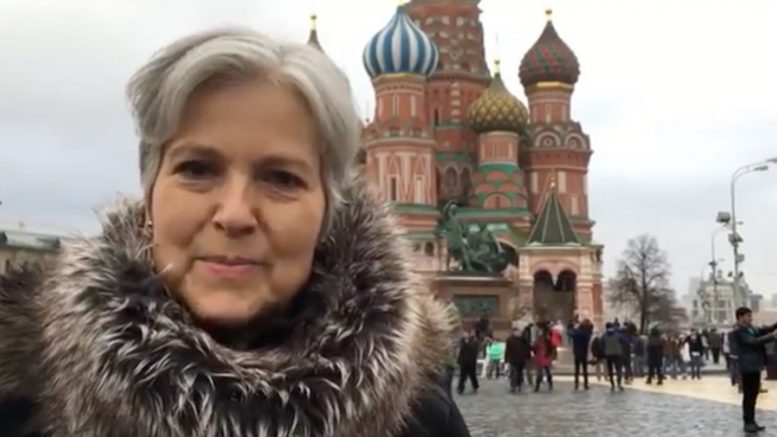Essential Opinion
By Nat Perry
March 8, 2017
Four months since the upset election of Donald Trump over Hillary Clinton, one of the primary scapegoats of the Democrats for their stunning electoral failure remains the Green Party and its 2016 presidential nominee, Jill Stein. Pointing to final vote tallies in Pennsylvania, Wisconsin and Michigan that showed Trump’s margin of victory as being below the total vote count for Stein, Democrats have coalesced around the conventional wisdom that Stein voters flipped the election by failing to unite behind the Democratic nominee.
As Matthew Rozsa explains the thinking at Salon, “if the Stein voters in those three states had all supported Clinton instead of Trump, the Republican candidate would have only received 260 electoral votes – 10 shy of the minimum necessary to become president.” So there you have it. Stein spoiled the election. Case closed.
The problem with this analysis is its flawed logic that anyone’s votes actually “belong” to anyone else, and further, it rests on the false assumption that all of Stein’s voters would have naturally voted for Clinton had the Green Party not been competing in the election. The fact is, many of these voters were turned off by Clinton’s hawkishness, perceived ethical lapses and close Wall Street ties, and would have never voted for her regardless of whether there was a third party alternative or not. Some would have stayed home, and others might have actually voted for Trump.
The suggestion that smaller parties don’t have a right to compete is also deeply anti-democratic and flies in the face of international standards for free and fair elections. Although Democrats rarely come out and openly state their desire for the Green Party to cease to exist, they do pointedly take issue with Green candidates competing in close elections, with the Democratic establishment seeing the Greens’ challenge from the left as an affront that complicates their electoral strategies.
Whether they acknowledge it or not, what Democrats seem to be suggesting is that people who do not identify with the candidates or positions of the Democratic Party simply should not have the option to vote for alternative candidates or to organize oppositional parties.
But according to an agreement signed by the United States in 1990 providing basic principles for democratic elections, individuals have the right “to establish, in full freedom, their own political parties or other political organizations” and governments must provide these parties the “necessary legal guarantees to enable them to compete with each other on a basis of equal treatment before the law and by the authorities.”
Despite these international commitments, the Democrats have doubled down on their attacks against Stein in the months since the election, now claiming that not only did she spoil the election by siphoning votes from Clinton, but that she may have done so at the bidding of Russian President Vladimir Putin – never mind the fact that Greens have been running presidential candidates in every U.S. election since 1996.
Democratic Party operatives have spread salacious rumors suggesting that Stein is under Putin’s control, using a photo taken in late 2015 of Stein sitting at a table with the Russian leader as proof of possible disloyalty or perhaps even treason. Viewed within the current context of the “new Cold War” and as part and parcel of the Russian election-meddling allegations, the photo of Stein is all the evidence needed by many Democrats predisposed to assume the worst about the Green Party and its nominee.
It should be kept in mind however that Stein has never attempted to conceal the fact that she attended this “controversial” dinner, which was marking the RT network’s 10-year anniversary, nor that she sat at a table with the Russian president. In fact, following the dinner, her presidential campaign issued a press release which stated matter-of-factly, “Stein attended a dinner Thursday night, sitting at the table with Russian President Vladimir Putin.”
The press release described Stein’s speech at the dinner in which she admonished both the United States and Russia for pursuing militaristic policies and spending too much money on a pointless arms race.
“The United States is now embarking on a $1 trillion program to update its nuclear weaponry while we are slashing programs to fight hunger, address homelessness, and provide economic security for our people,” Stein said. “In Russia also, money runs short for critical needs because of the heavy burden of military spending. Imagine how much better off the world would be if our two nations could lead the way for the major powers to reduce the size of our military establishments.”
Stein also posted on Facebook that she “was in Russia to speak at an RT conference along with many other people, including many fellow activists from the peace movement.” While there, she shared a video message on YouTube – recorded from Moscow’s Red Square – in which she called for an end to militarism, and for an international order based on respect for human rights and international law.
Despite her openness about her participation in the dinner, in these neo-McCarthyite times of wild speculation, baseless innuendo and general anti-Russian hysteria, Democratic operatives and bloggers are raising questions about whether the dinner is proof that Stein is actually on the payroll of the Russian government. The insinuation is that her 2016 campaign for the presidency was intended to help throw the election in favor of Trump, acting at the behest of Putin.
Trolling Jill Stein’s Twitter account with these sorts of accusations has seemingly become second nature to many Democratic Party supporters, with every tweet by Stein responded to by dozens of hostile Democrats who continue to blame the Green Party for spoiling the election.
Typical is a response to a tweet Stein sent out on March 2 in support of ranked choice voting. “Democrats used a runoff vote for DNC chair, so why are they fighting runoff voting in places like CA & MN?,” Stein tweeted.
“Are you trying to take focus off of your Russian buddy?” replied a Democratic partisan going by the name of Trice. “Is Vlad paying your bills or are you using the recount $ you scammed?”
A blogger named Bill Palmer went even further in a Feb. 24 post at the “Palmer Report.” Pointing to a New York Daily News article which alleges that Michael Flynn was paid $40,000 to attend the dinner with Putin in Dec. 2015, Palmer notes that “this raises a serious question which Jill Stein must now answer: did the Kremlin also pay her to be at the dinner?”
At the Daily Beast, Casey Michel also suggested that Stein is accepting bribes from the Russian government. Michel wrote on Jan. 13, “it remains unclear who paid for Stein’s trip to Moscow and her accommodations there.”
MSNBC’s Rachel Maddow has also promoted the Stein-as-Russian-agent conspiracy theory, implying recently that Stein’s relative silence on the Russian-hacking story implicates her as a Kremlin stooge.
“So everybody’s like, ‘Wow, how come this like super, super aggressive opposition that we saw from these third-party candidates – how come they haven’t said anything since this scandal has broken?'” Maddow said on Viceland’s Desus & Mero show on Feb. 15.
“I don’t know, Jill! I can’t pronounce it in Russian!” Maddow said mockingly. “Hope you’re really psyched about your Wisconsin vote totals!”
While it would certainly be interesting if Stein actually received money from the Russian government to appear at the RT dinner, it should be noted that in her video message from Red Square, Stein started off by thanking Green Party supporters “for making this wonderful and inspiring trip possible.” This is an indication from Stein that her grassroots campaign donors paid for the trip.
It should also be pointed out that if Stein’s loyalty to America is being called into question for attending this dinner, it would only be fair to raise suspicions about the national loyalties of all the others who attended the event, a guest list that included international diplomats, journalists, a former mayor of London, and senior statesmen.
But of course, these are not the targets de jure of the Democratic Party, which has instead zeroed in on Stein and the Green Party. This gives the appearance of selective outrage, amounting to little more than a smear job by those growing desperate to hold on to voters and donors at a time when a majority of Americans are clamoring for alternatives and identifying not as Democrat or Republican but as independent.
A survey last year by the Associated Press-NORC Center for Public Affairs Research reported that a full 90 percent of voters lack confidence in the country’s political system while 70 percent said they feel frustrated about the 2016 presidential election and 55 percent reported feeling “helpless.” Forty percent said the two-party structure is “seriously broken.”
Another survey taken last summer found that 55 percent of Americans favored having an independent or third party presidential candidate to consider on the ballot, in addition to the two traditional party choices. Of those 29 years of age and younger, 91 percent expressed support for additional choices.
It is in this context of discontent that the current smears against the Green Party should be understood. The two dominant parties know that Americans are hungry for alternatives, so party operatives are working overtime to discredit the only viable alternatives that exist to the status quo.
It is an undemocratic strategy to sideline genuine competition, and is doubly irresponsible by claiming that a political figure is working at the behest of a foreign power – especially in these days of deepening division and a growing neo-McCarthyism.
As an added bonus, this undemocratic strategy does not appear to be helping the Democrats, and indeed, ever since the party decided some time last fall to zero in on the “Russian hacking” story as their primary line of attack, their poll numbers have plummeted. Their favorability rating has dropped from about 50 percent just before the election to a current low of about 39 percent. Their unfavorability rating is now 49 percent, the highest it’s been for three years.
If the Democrats hope to reverse some of these trends, they might try developing policy ideas that help Americans rather than attacking progressives for throwing their support behind alternative parties, and perhaps consider giving it a rest with the McCarthyite smears against those perceived to be “Russian sympathizers.”

